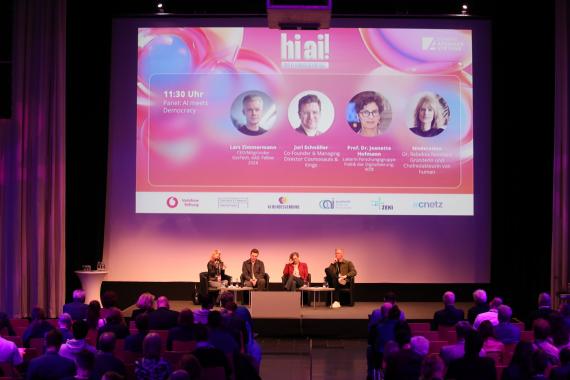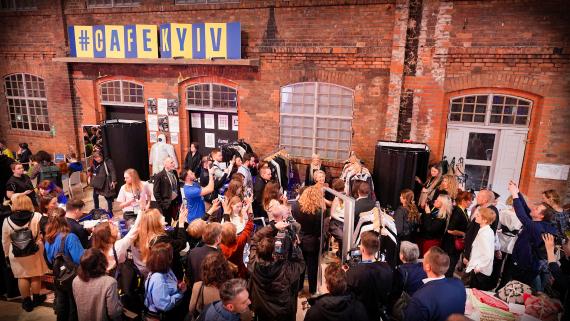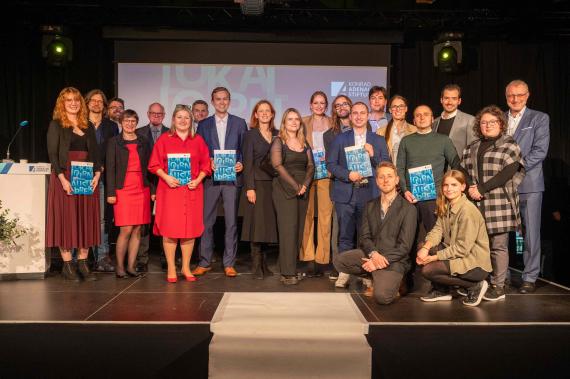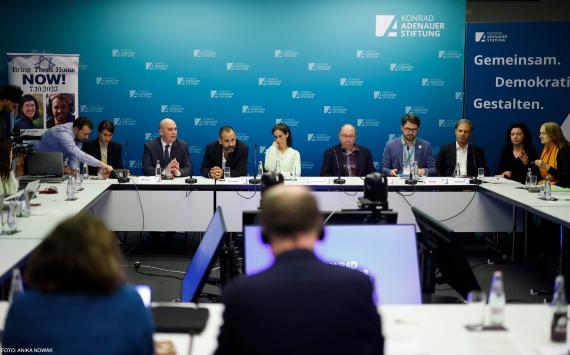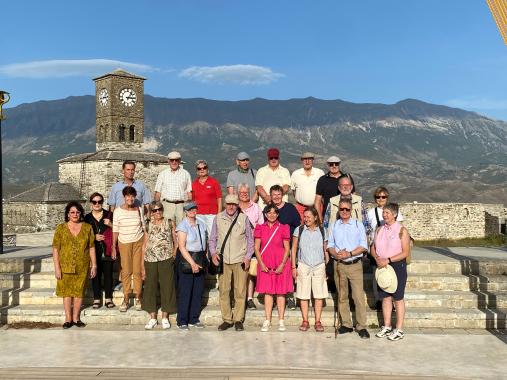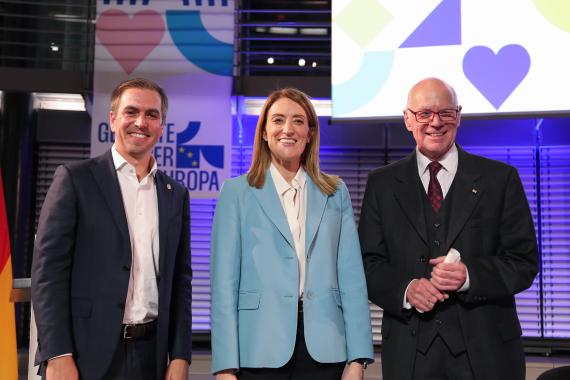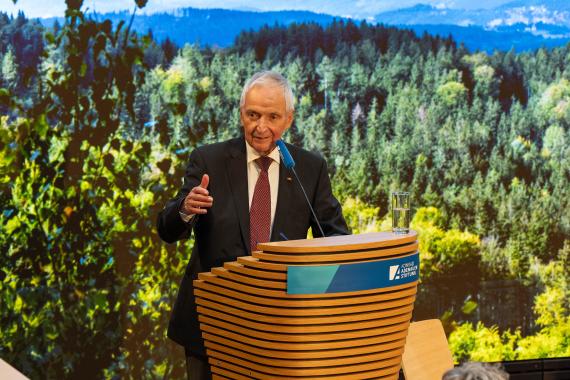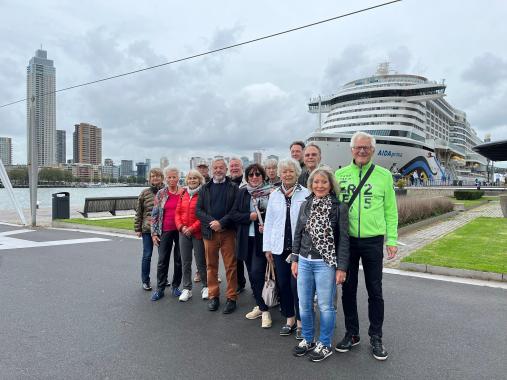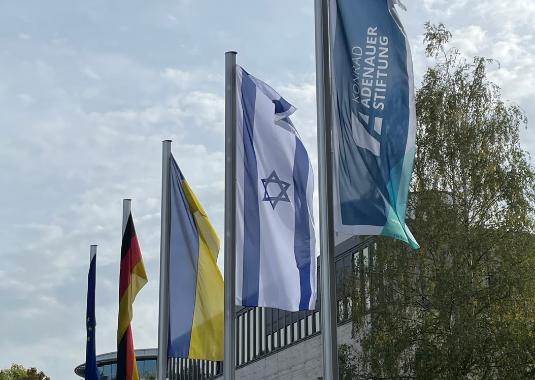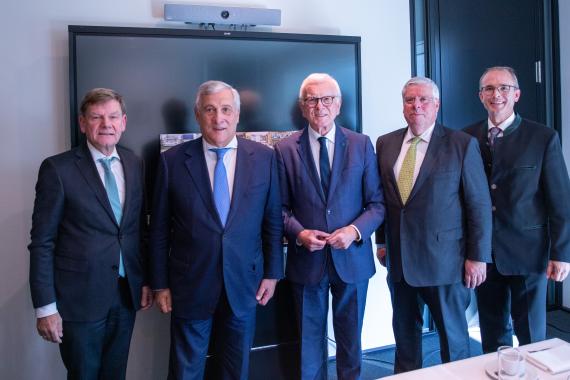Veranstaltungen - Auslandsbüro Belarus
Fachkonferenz
„Adenauer-Konferenz“: Die Rolle Deutschlands in der internationalen Sicherheitspolitik
Deutsche Sicherheitspolitik – zwischen Verpflichtungen und Fähigkeiten
Auf der XII. Adenauer-Konferenz am 15. Mai 2024 diskutieren Expertinnen und Experten aus Politik, Wissenschaft, Militär und Gesellschaft über die wichtigsten Wegmarken hin zur deutschen Kriegstüchtigkeit sowie über die heraufziehenden Herausforderungen für die NATO im 75. Jahr ihres Bestehens.
Fachkonferenz
Kiel Security Conference 2024
Critical Junctures – the Future of the North
in cooperation with The International Institute for Strategic Studies (IISS) and Hermann-Ehlers-Stiftung (HES)
Buchpräsentation
Stark nach außen, sanft nach innen: Plädoyer für ein vorsichtiges Europa
Buchpräsentation von René Cuperus, Clingendael Institute (Niederlande)
Event
Balten-Beats im NATO-Kiez
Politisches Kabarett "Litauen, Litauen!"
Fachkonferenz
storniertDie Zukunft der Handelsbeziehungen zwischen der EU und Lateinamerika
Lateinamerika-Konferenz in Zusammenarbeit mit der CDU/CSU-Bundestagsfraktion
Diskussion
Zwischen Moskau, Peking und Washington: Lateinamerika in der Großmachtkonkurrenz
Vorstellung der Publikation
Fachkonferenz
Kiel Security Conference
"Spies, Subs and Melting Ice - Old & New Challenges to the Baltic Sea Region"
Having been a region shaped by strategic competition before, the Baltic region and its security dynamics have been fundamentally affected by Russia’s war of aggression against Ukraine. Chinese military build-up as well as potential Russian-Chinese cooperation in the Arctic require an adjustment of NATO’s posture in the region. The political implications arising for Baltic littoral states, the EU and the transatlantic partnership shall be in the focus.
Diskussion
75 Jahre Israel: Der schwere Weg zu Versöhnung & Freundschaft mit Deutschland
Live über Twitter Spaces
Gespräch
India Salon: Climate Resilience and Sustainable Urban Design
In Conversation With Sudhanshu Mani - Mobilising Hope
In the global struggle to keep global warming in check, it will be vital to cooperate across continents and take inspiration from around the world. As the most populous country on Earth and blessed with formidable economic growth, India will be central to the international community's efforts to mitigate climate change. In this event Sudhanshu Mani, who has been at the forefront of sustainable mobility in India, will present what it takes to bring long-term change on track.
Expertengespräch
Von Partnern zu Freunden?
Eine neue Phase in den deutsch-griechischen Beziehungen
Fachkonferenz
XI. „Adenauer-Konferenz“: Die Rolle Deutschlands in der internationalen Sicherheitspolitik
Deutsche Sicherheitspolitik – zwischen Verpflichtungen und Fähigkeiten
Auf der XI. Adenauer-Konferenz am 10. Mai 2023 diskutieren Expertinnen und Experten aus Politik, Wissenschaft, Militär und Gesellschaft über die Implikationen des Angriffskriegs Russlands für Deutschland und Europa, die Zukunft der euroatlantischen Sicherheitsarchitektur, die strategischen Herausforderungen einer russisch-chinesischen Allianz für den Westen sowie über hybride Bedrohungen für unsere demokratischen Gesellschaften.



